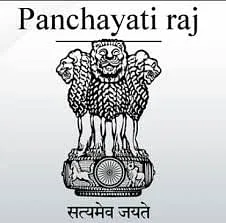Jammu: The Panchayati Raj Institutions (PRIs), through which the self-government of villages is realised, have been entrusted with task of “economic development, strengthening social justice and implementation of Central and State Government Schemes at grassroots level, said an official press release.
The modern Panchayati raj system was formalised and introduced in India in April 1999 as the 73rd Amendment to the Constitution.
Under this system, an institution of ‘empowered local government’ is established with devolution of Functions, Funds and Functionaries (3Fs) to give people not only the voice but the power of choice as well.
The essence of Panchayati Raj is participatory local governance with bottom-up inputs into development process. It is part of a broader strategy of new ways of looking at and implementing participatory development in the light of a fresh parameter of ‘inclusion’ in governance.
Panchayati Raj has assumed importance for the democracy to ensure peoples’ participation for equitable development and social empowerment in a transparent and accountable manner.
While people across India enjoyed the right to elect local representatives, the same freedom was not exercised in Jammu and Kashmir. It is only after the abolition of Article 370, the Union Cabinet on October 21, 2020 approved adoption of Jammu and Kashmir Panchayati Raj Act 1989, paving way for local body elections in the Union Territory. It ensured establishment of all three tiers of grass root level democracy in the UT of J&K for the first time since independence.
In a fresh impetus towards strengthening grassroots democracy, free, fair and peaceful panchayat elections were held in the UT which led to the constitution of vibrant Panchayati Raj institutions here. In a significant achievement, these panchayat elections recorded a substantial 74.1 per cent voter turnout. A total of 3650 sarpanchs and 23660 panchs were elected to lay foundation for 3-tier Panchayati Raj system for the first time across J&K.
After successful conduct of Panchayat elections, elections for Block Development Councils (BDCs) were conducted for the very first time in the history of J&K. The BDC elections saw an overwhelming voter turnout of 98.3 per cent in which 276 chairpersons were elected in a total transparent manner.
Finally, District Development Council elections were held in eight phases which witnessed tremendous voter turnout of 51.7 per cent. The process elected 20 DDC Chairpersons and 20 Vice Chairpersons besides a total of 278 DDC members were also elected thus completing the implementation of 3-tier Panchayati Raj system in its total form.
After amendment of Panchayati Raj Act 1989, 27 subjects were transferred as part of 73rd amendment in the constitution.






